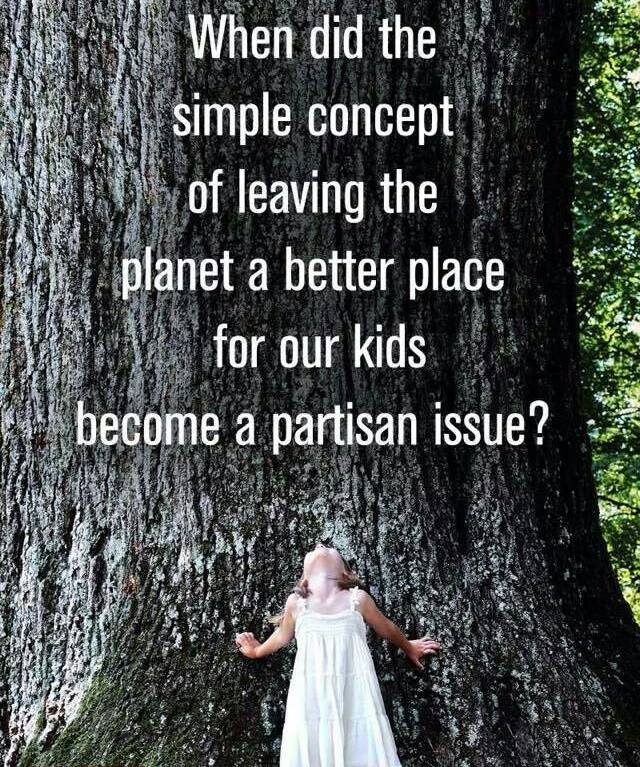Leaving the Planet a Better Place

Before that time, there was great unanimity among Americans that government existed, at least in part, to take care of those least able to take care of themselves. Below is a summary of the GOP platform in 1956; note how similar to today’s Democratic values this is.
Especially over the last 40 years, the entire country, at least the two main political parties, has shifted hard to the right, and the GOP finds itself in a place so far to the right that it has never existed in this country’s history.
Specifically on the issues of leaving the planet a better place, Republicans of today consider this is an ideal of what they refer to as the “radical left.” Trump has an 87% approval rating within his own party, and his administration has repealed or rolled back more than 100 important environmental regulations that formerly protected our health, waterways, skies, climate, national parks, and wildernesses.
We have emerged at a point where an entire political party, almost half of all Americans, really couldn’t care less about the quality of the planet we’ll be leaving to our descendants. It’s been as amazing a development as it’s been disgusting, watching this descent into the bald-faced indifference to others’ suffering.
—
From Politifact, who finds this “mostly true” — see “closer look” below
Here are the seven planks (to the 1956 GOP platform) which to today’s ear sound more like Democratic talking points:
1. Provide federal assistance to low-income communities;
2. Protect Social Security;
3. Provide asylum for refugees;
4. Extend minimum wage;
5. Improve unemployment benefit system so it covers more people;
6. Strengthen labor laws so workers can more easily join a union;
7. Assure equal pay for equal work regardless of sex.
We wondered whether the meme accurately describes these elements of the 1956 platform, and if so, whether the 1956 document contrasts sharply with the most recent party platform in 2012. So we took a closer look.
